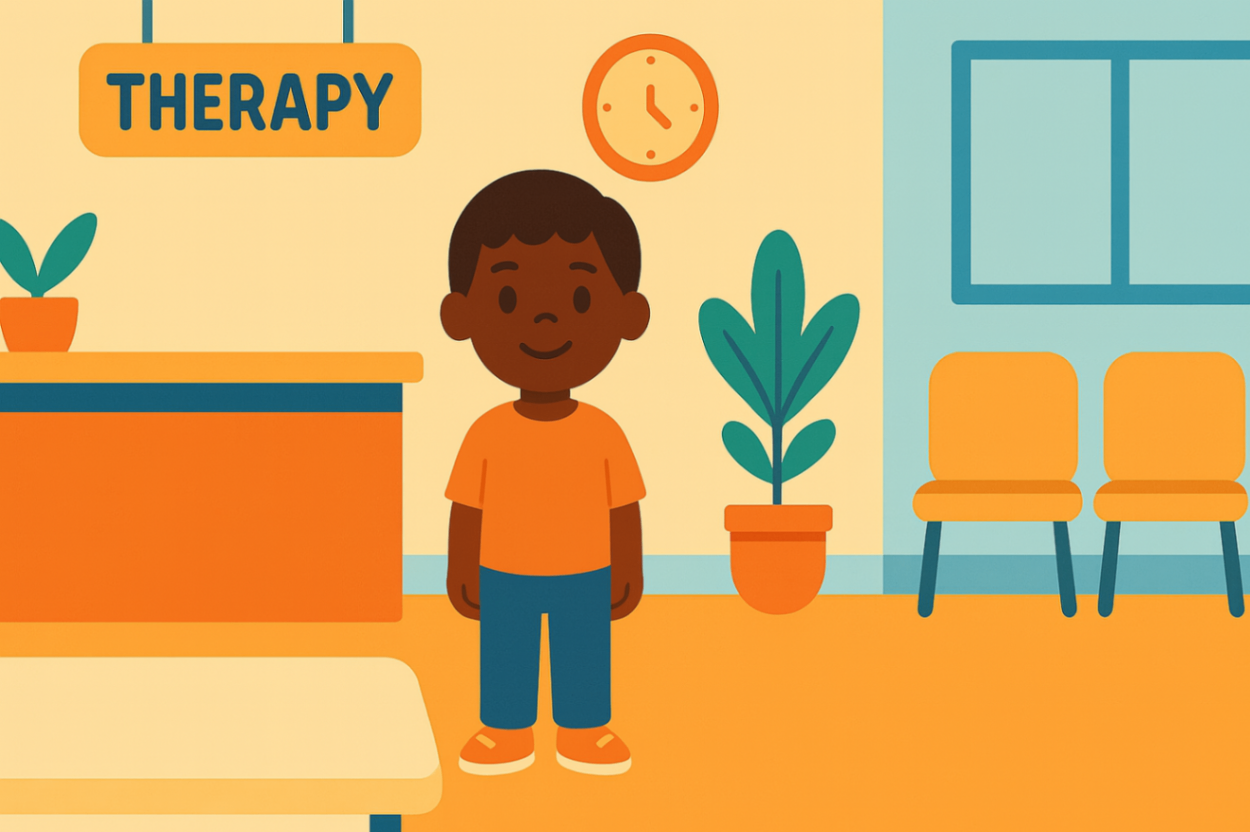
understanding ndis for autism: how support works for families
11 July, 2025

Key Highlights
-
Person-Centered Funding: One flexible package you can spend with registered providers—no more juggling separate programs.
-
Goal-Driven Supports: Choose services that align with your child’s development milestones, from communication skills to daily-living independence.
-
Built-In Flexibility: Plans can evolve as needs change—whether you’re trialling social-skills groups or updating an example NDIS autism plan after a review.
Transforming Journeys with NDIS Support
 The NDIS isn’t just another funding program—it’s the cornerstone of NDIS autism care in Australia, empowering families with tailored supports that truly transform lives. Rather than a one-size-fits-all approach, the scheme puts you at the centre, giving you the choice and control to design an autism NDIS plan that meets your unique goals. From early-intervention therapies to assistive equipment, every dollar in your plan is earmarked to build skills, boost independence and nurture confidence.
The NDIS isn’t just another funding program—it’s the cornerstone of NDIS autism care in Australia, empowering families with tailored supports that truly transform lives. Rather than a one-size-fits-all approach, the scheme puts you at the centre, giving you the choice and control to design an autism NDIS plan that meets your unique goals. From early-intervention therapies to assistive equipment, every dollar in your plan is earmarked to build skills, boost independence and nurture confidence.
NDIS for Autism: An Overview
NDIS gives you plans close to your needs if you are on the autism spectrum. The plans aim to help you be more independent and take part in social life. Each ndis plan for autism looks at the special challenges and dreams that you have. No matter if you want help with school or other strong therapies, the disability insurance scheme gives you the right services for what you want.
If you join, you get funding to help you beat challenges in things like talking with others or taking care of yourself. The disability insurance scheme runs on helping people who have permanent disabilities. The national disability insurance agency, or disability insurance agency, decides who can get help. The ndis plan makes sure your autism support is useful and really helps you where you need it most.
Visit us at our Liverpool clinic or one of our neighbouring centres in Canterbury, Bankstown and Casula to discuss how an example NDIS autism plan can be tailored to your needs.
What Is the National Disability Insurance Scheme (NDIS)?
The NDIS is a national initiative designed to meet “reasonable and necessary” disability-related needs through three support pillars:
-
Early Intervention: Intensive therapies for young children, including speech pathology and occupational therapy.
-
Capacity Building: Skill-development programs like Applied Behaviour Analysis and life-skills coaching.
-
Capital Supports: Home modifications or assistive technology to enhance participation and independence.
The Role of the National Disability Insurance Agency (NDIA)
The National Disability Insurance Agency (NDIA) administers the scheme—handling eligibility assessments, plan approvals and periodic reviews. Local planners guide you through goal-setting, cost estimates and provider connections, ensuring that your NDIS autism plan remains aligned with your family’s evolving needs.
The agency talks and works with local area coordinators. It also connects with NDIS providers. The goal is to help each person with autism spectrum get what they need. This includes better communication skills, more social inclusion, and a chance to take part in work and the community. By doing all this, the agency helps to give autistic people and their families a better quality of life. It opens up ways for economic participation and makes sure no one is left out.
To learn more about how funding streams work and whether you meet the criteria, read our NDIS Funding for Autism & Eligibility article.
Types of Supports Funded by the NDIS for Autism
Funding under NDIS for autism gives people access to different services that help make life better. The necessary supports may give financial help for things like speech therapy and occupational therapy. These therapies can help with speaking and everyday movement challenges.
|
Support Category |
Examples |
|---|---|
|
Core supports |
Daily living assistance, transport funding |
|
Capacity Building |
ABA therapy, speech pathology, occupational therapy |
|
Capital Supports |
Assistive technology, home modifications |
People can get capacity-building funding. This type of money aims to help someone be more independent and connect well with others. These supports could be things like assistive devices, help with behaviour management, or changes in the home so it is easier to use. Service providers play an important role in giving these therapies. They follow NDIS rules to make sure people get the right help.
Autism NDIS Eligibility Criteria
Eligibility for autism support under NDIS depends on having big problems that affect how you can do daily things. To apply, you need to have a current autism diagnosis from health professionals. These can be pediatricians, psychiatrists, or psychologists.
To access NDIS autism supports, you must satisfy:
-
Age & Residency: Under 65 and an Australian citizen or permanent resident.
-
Disability Requirements: A formal Autism Spectrum Disorder diagnosis plus evidence of how it impacts everyday functioning (communication, social interaction, behaviour regulation).
Once you understand funding, you can start building a tailored support plan—see our NDIS Autism Support Plan Guide for step-by-step instructions.
Autism and NDIS Access Requirements
Getting NDIS funding for Autism Spectrum Disorder (ASD) means you have to meet certain rules in the program guidelines. You start by filling out an Access Request Form. You need to add papers that show your permanent disability.
To get the funding:
-
You must have a permanent autism spectrum disorder diagnosis from health professionals.
-
You have to show you have big problems with communication, self-care, or social interaction.
-
If you have a Level 2 or 3 asd diagnosis, you get automatic consideration. If you have Level 1, you will need to give more proof.
-
The diagnosis needs to be new and must follow what the Statistical Manual of Mental Disorders (DSM-5) says.
NDIS wants to give you the right support. The goal is to help your personal development and help you take part in the community.
NDIS Autism Therapy: Types of Therapy Available
 NDIS gives different kinds of therapies to help people on the autism spectrum. These therapies work to build communication skills, support better movement, and help people join in social settings. With early intervention, there is a chance to help with skills that may not be growing well yet.
NDIS gives different kinds of therapies to help people on the autism spectrum. These therapies work to build communication skills, support better movement, and help people join in social settings. With early intervention, there is a chance to help with skills that may not be growing well yet.
|
Therapy Type |
Function |
|---|---|
|
Speech Therapy |
Helps with social communication and language skills |
|
Occupational Therapy |
Makes motor skills better and helps people do everyday tasks |
|
Behavioural Therapy |
Works on repetitive behaviours and helps with social skills |
|
Assistive Technology Services |
Gives devices that help people with their communication needs |
All the help from NDIS is to make a good path for growth, especially for kids who need early intervention.
How to Apply for NDIS for Autism
Applying for NDIS starts with an Access Request through the NDIS website or by calling their helpline. At this stage, the NDIS checks if you meet key NDIS requirements. These requirements include having a permanent disability.
When you send in your Access Request, you have to give proof of your autism diagnosis. You also need to show how your daily life is affected by your disability. If your request is approved, you will then be made an NDIS participant. This means you can get funding for support services. If you get ready for this first step, things will go smoother as you start to receive help.
If you’re based in Liverpool and need practical advice on accessing services locally, check out our Guide to Accessing NDIS Support for Autism in Liverpool.
Preparing for Your NDIS Planning Meeting
A good NDIS planning meeting comes from being ready and knowing your child's support needs. Start by gathering all the details you have about costs for care and therapy.
Here are some helpful tips for planning:
-
Look at SMART goals. These need to be clear, can be measured, are realistic, fit your child's needs, and have a set deadline.
-
Join NDIS participant forums to hear from other parents who go through the same things.
-
Talk to health professionals. Ask them for reports to back up why your child needs certain care.
-
Write down questions you want to ask your local area coordinator before you go to the meeting.
Getting ready ahead of time helps make sure your child has the right supports in place.
Developing an Individualised NDIS Plan
Creating a strong and individual ndis plan starts by looking at your daily needs and long-term goals. Your plan manager works with you to see what you need. This helps to make sure that your funds go to capacity building and important support services.
NDIS plan management gives you control over picking the right support providers. You can do this with agency management or manage things by yourself. Capacity building works on your social and communication skills, which are key for people with autism.
With good planning and preparation, an ndis plan can help you reach your life goals and be more independent.
Conclusion
To sum up, knowing about NDIS support for autism can really change lives for the better. The National Disability Insurance Scheme has many types of help made for people on the autism spectrum. With this support, individuals and families can get therapies and services that fit what they need. If you know the eligibility steps and make a plan just for you, you can get the important help that makes day-to-day life better. This help can give people more chances to grow, be independent, and feel well. It’s important to keep learning about what supports are out there and how to use them right. If you have questions about the Disability Insurance Scheme or need help at any point, you can always ask for expert guidance.
Take the first step toward a brighter future—book your NDIS Autism consultation at our Liverpool clinic today and find out how we can tailor a positive behaviour support plan.
Frequently Asked Questions
What is an NDIS plan for autism?
An NDIS plan is a personal guide for people on the autism spectrum. It gives a clear picture of the funding they get for their support needs. The plan lists the therapies and services they can use. It also shows their goals and how plan managers will help with these.
How does NDIS support people with autism?
The NDIS helps people with autism by giving them funding made just for their needs. This money can be used for things like therapy, help at school, and support with day-to-day tasks. The support means they get the right help to grow, develop, and have a better quality of life.
Will NDIS fund autism assessment?
Yes, NDIS may pay for autism checks that are done by health professionals. These checks are needed so they can make support plans that fit what each person needs. They also help meet the program rules.
How do I find NDIS-registered autism service providers in Australia?
You can use the NDIS Provider Finder on the official website to find local service providers. This tool helps you look for registered support providers in your area. If you are plan-managed or self-managed, you can get autism support from the service providers listed in the NDIS Provider Finder.
.svg)

















